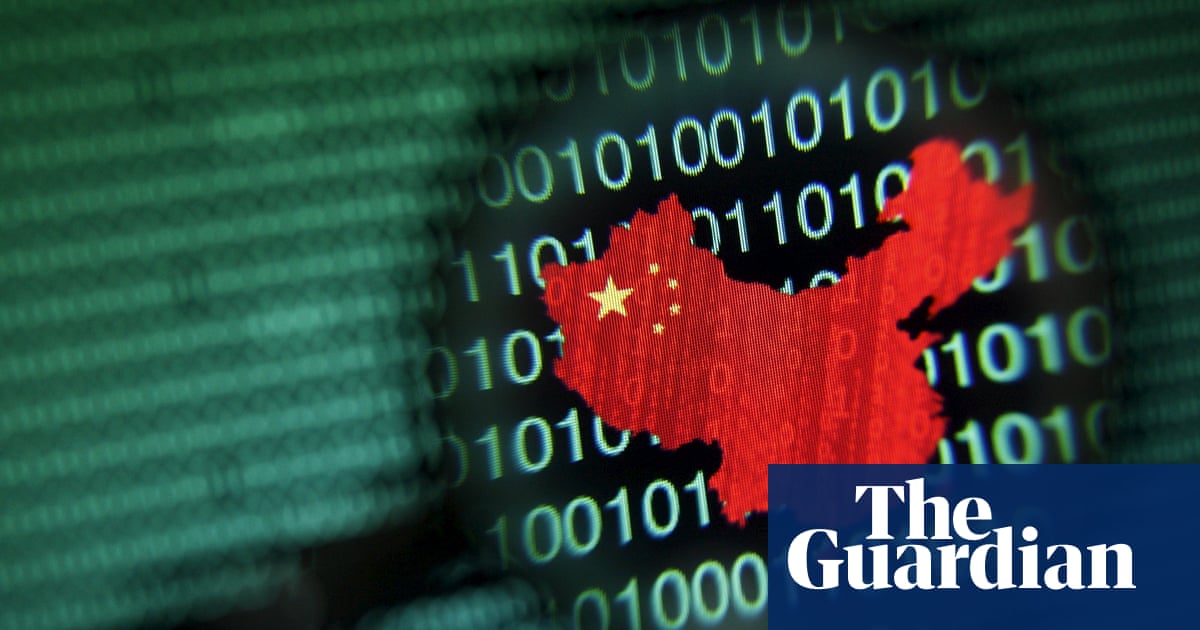Australia joins allies in accusing China of ‘malicious cyber activities’
Show caption The Australian government says Beijing has ‘undermined international stability and security by opening the door to a range of other actors including cybercriminals’. Photograph: Edgar Su/Reuters China Australia joins allies in accusing China of ‘malicious cyber activities’ The Australian government says China’s ministry of state security exploited vulnerabilities in Microsoft Exchange software Daniel Hurst Foreign affairs and defence correspondent @danielhurstbne Tue 20 Jul 2021 07.23 BST Share on Facebook
Share on Twitter
Share via Email
The Morrison government has joined with the United States, the United Kingdom and other countries to accuse China of malicious cyber activities, prompting the Chinese embassy in Australia to denounce the claims as “groundless” and “extremely hypocritical”.
Senior Australian ministers said they held serious concerns about the activities and called on all countries – including China – to act responsibly in cyberspace. They declared Beijing “won’t get away with it scot-free”.
The home affairs minister, Karen Andrews, said with many nations joining together to level the accusations there would be “significant reputational damage to China”.
“They have been called out and we will continue to call out, not only China, but other nations, if they do launch and undertake significant attacks here on Australians and Australian businesses,” Andrews told reporters in Canberra on Tuesday.
In a statement issued late on Monday Australian time, Andrews and two fellow cabinet ministers said the government had “determined that China’s ministry of state security exploited vulnerabilities in the Microsoft Exchange software to affect thousands of computers and networks worldwide, including in Australia”.
“These actions have undermined international stability and security by opening the door to a range of other actors, including cybercriminals, who continue to exploit this vulnerability for illicit gain,” Andrews said in a joint statement with the foreign affairs minister, Marise Payne, and the defence minister, Peter Dutton.
In March, Microsoft released a patch to Exchange after discovering that hackers were stealing email communications from internet-facing systems running its business software.
The Australian government’s cybersecurity agency previously urged any organisations using Microsoft Exchange to urgently update their systems but until now the government has not publicly attributed blame to China.
“The Australian government is also seriously concerned about reports from our international partners that China’s ministry of state security is engaging contract hackers who have carried out cyber-enabled intellectual property theft for personal gain and to provide commercial advantage to the Chinese government,” the Australian ministers said on Monday.
The Biden administration coordinated the statements pointing the finger at China. An administration official described it as “an unprecedented group of allies and partners”, including the US, the European Union, the United Kingdom, Australia, Canada, New Zealand, Japan and Nato.
Andrews said on Tuesday that “many of our partner nations have worked together to make sure we have very high levels of confidence that this was the Chinese ministry of state security that was behind this attack”.
The Chinese embassy in Canberra dismissed the Morrison government’s statement as “groundless” and a case of Australia “following the steps and parroting the rhetoric of the US”.
A spokesperson for the embassy said on Tuesday that China “always firmly opposes cyber-attacks and cyber theft in all forms” whereas the US had “engaged in unscrupulous, massive and indiscriminate eavesdropping on many countries including its allies”.
“Australia also has a poor record, including monitoring the mobile phone of the president of its biggest neighbour country, not to mention acting as an accomplice for the US’s eavesdropping activities under the framework of Five Eyes alliance,” the Chinese embassy spokesperson said.
“What the Australian government has done is extremely hypocritical, like a thief crying ‘stop the thief’.”
Amid ongoing tensions with Beijing, the Australian ministers suggested they were not singling out China. They said that since 2017, Australia had publicly attributed malicious cyber activity to North Korea, Russia, China and Iran.
But there have been recent cases of the government stopping short of publicly and formally attributing blame to specific countries.
That included cyber activity in June last year when the prime minister, Scott Morrison, called a press conference to say public and private sector organisations were “currently being targeted by a sophisticated state-based cyber actor”.
Federal Labor’s cybersecurity spokesperson, Tim Watts, said he welcomed the Australian government joining with its international partners to “reinforce norms of appropriate state behaviour in cyberspace”.
But Watts – who told parliament in late March the government had been silent on how it intended to respond to the Microsoft Exchange attack – said the government should clarify how it chooses whether to publicly attribute cyber incidents.
“It’s important that attribution decisions are always made in the long-term national interest, not based on short-term domestic political interests,” Watts said on Tuesday.
Andrews said the attribution had been part of “a global response” and not just “Australia on its own”.
But she said the government “absolutely” would be prepared to make attributions without being joined by other partner countries “if that’s what we needed to do and it was in our national interests to do so”.
Monday’s statement, although issued in concert with allies and partners, indicates the Australian government remains prepared to publicly criticise Beijing despite the relationship with Australia’s top trading partner already dropping to the lowest point in years.
Dutton said in April the risk of conflict over Taiwan could not be “discounted”.
The former home affairs minister has previously defended his commentary about security threats posed by China, saying it was “more important than ever that we have a frank and nuanced discussion with the Australian people about the threats we face”.













